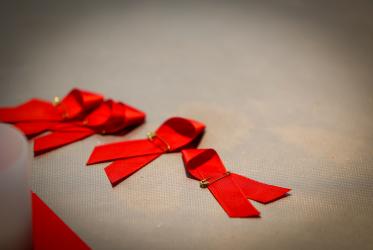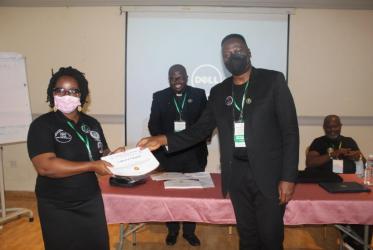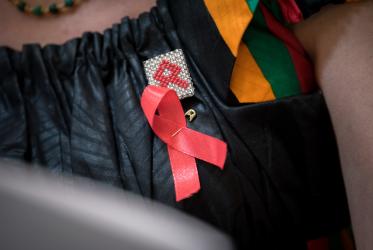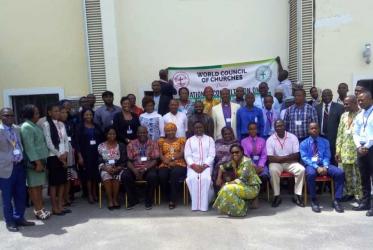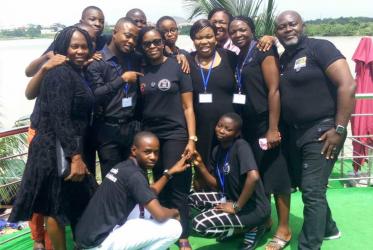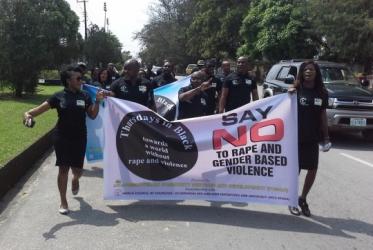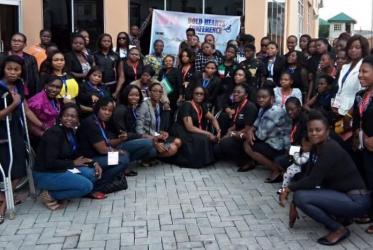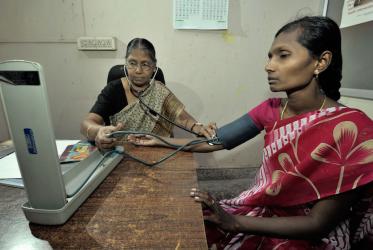Displaying 1 - 20 of 20
Young people in Nigeria focus on positive masculinity, femininity
14 December 2018
In Nigeria, Thursdays in Black is flourishing
26 March 2018
“It’s time to be brave, to form diverse partnerships”
02 March 2017
“Health and healing for all people, that is the challenge”
28 February 2017
New videos help congregations hasten HIV response
20 October 2016
Person with disability shares reflection on AIDS conference
10 December 2015
Pilgrimage of justice and peace gives vision for WCC programmes
22 November 2014

